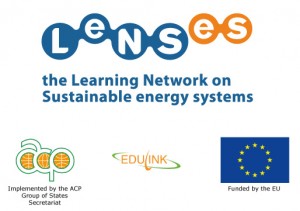Background
Currently, within the international scientific community dealing with sustainable development, the need for a paradigm shift is often stated, to lead to a new era driven more by democratic and inclusive decentralised or distributed systems, based on renewable energies.
Though energy is the world’s dominant industrial sector, current centralized and non-renewable energy systems are far from being able to provide access energy to all, in a sustainable way. If we look at the current energy system at a global level, we can affirm that it is definitively unsustainable, with around 82% of the total primary energy supply coming from fossil fuels. It is not only a matter of the relative share of renewable sources. It is also a matter of access to energy. It is estimated for example that 1.4 billion people (around 20% of global population), lack access to electricity. The lack of access to energy reliable, safe and affordable energy is an important obstacle to economic and social development, and none of the Millennium Development Goals (MDGs) can be met without substantial improvements in the quality and quantity of energy services in middle and low-income contexts.
The international community is committed to addressing this issue of energy access. To this end the United Nations Secretary-General has recently launched the Sustainable Energy for All (SE4All) initiative, aimed at ensuring universal access to energy, double that rate of improvement in energy efficiency and double the share of renewable energy. Contextually, 2012 was designated International Year for Sustainable Energy for All, and 2014-2024 theDecade of Sustainable Energy for All. Several authors have observed that the transition from centralized and non-renewable fossil-fuel resources to Distributed Renewable Energies (DRE) plays a key role in the transition towards sustainable development.
This trend forecasts a more carbon neutral world with equitable distribution of energy as a vision soon to be realised if radical change in education, research and practice is addressed, now. An escalation in the consolidation and diffusion of a coherent knowledge-base, as well as salient criteria, methods and tools is called for, to collaboratively build and disseminate knowledge and innovative practice.
Conference aims
The conference aims to be both visionary and pragmatic, and to stimulate new ways of thinking. The scope is to share the latest knowledge and experiences around the concept of sustainable energy for all, with a particular focus on the design and implementation of sustainable energy systems. This will be achieved through cross-fertilising a wide range of disciplines: design, engineering, economy, policy-making and sociology.
Therefore, the conference is targeted at academics, researchers and educators, as well as designers, engineers, businessmen, economists, policy-makers, representatives from governmental and non-governmental organisations. The event is envisaged as an interdisciplinary arena asking to all invited stakeholders to adopt the ethos of promoting all possible cross-fertilizing synergies and open learning-by-sharing processes.
From design to engineering, education to architecture, economics to policy-making, the conference will create a vibrant and forward-thinking space in which to diffuse new knowledge and share practices and experiences in the ever-increasing need to enable access to sustainable renewable energy, for all.
Papers will be presented alongside workshops for practice and postgraduates, and an exhibition of successful community and industry projects.
Themes
The conference is structured around four main themes that include
- Research on Sustainable Energy for All:new advancements and knowledge
contributions on sustainable energy systems design and implementation - Education on Sustainable Energy for All:experiences of teaching & learning on sustainable energy systems (in higher education and lifelong learning)
- Practice on Sustainable Energy for All:best practices of sustainable energy systems
- Dilemma – Design, development and sustainability: Where are the challenges? What are the new Research Hypothesis? What constitutes ‘access’? What are the commercial potentials? How does education play a role and who are the learners/students? Where and what are the emerging technologies and training opportunities? Who are the actors and what are their roles for a sustainable society and more in general sustainable development?
Sub-themes
- The Research for Sustainable Energy for All section call for papers addresses the following sub-themes:
- Theory: papers presenting and discussing new theoretical considerations and contributions on the role of design and other disciplines in the transition towards a Sustainable Energy for All society
- Approaches, methods and tools: papers presenting, analyzing and discussing new approaches, methods and tools to operatively enable developing, implementing and disseminating Sustainable Energy for All systems
- Experiences and proposals: papers presenting, analyzing and discussing concrete solutions and artifacts developed as results of research activities
- Education for Sustainable Energy for All section call for paper addressing the following sub-themes:
- Theory: papers presenting and discussing new SE4A development and diffusion education strategies and curricula
- Approaches, methods and tools: papers presenting, analyzing and discussing approaches, methods and tools to support SE4A development and diffusion education
- Experiences and proposals: papers presenting, analyzing and discussing experiences on implemented courses/workshops/seminars on SE4A development and diffusion
- Dissemination: papers presenting, analyzing and discussing strategies to disseminate SE4A development and diffusion education
- Practices on Sustainable Energy for All section call for paper addressing the following sub-themes:
- Approaches, methods and tools: papers presenting, analyzing and discussing approaches, methods and tools to operatively support SE4A development and diffusion in practice (within design agencies, companies, institutions, communities, etc.)
- Experiences and proposals: papers presenting, analyzing and discussing concrete solutions and artifacts developed by designers, companies, institutions, communities, etc.
- Dissemination: papers presenting, analyzing and discussing strategies to disseminate SE4A development practice.

![CPUTtextstack [Converted]-01](http://www.lensesconference.polimi.it/wp-content/uploads/2016/01/CPUTtextstack-Converted-01-300x180.png)
